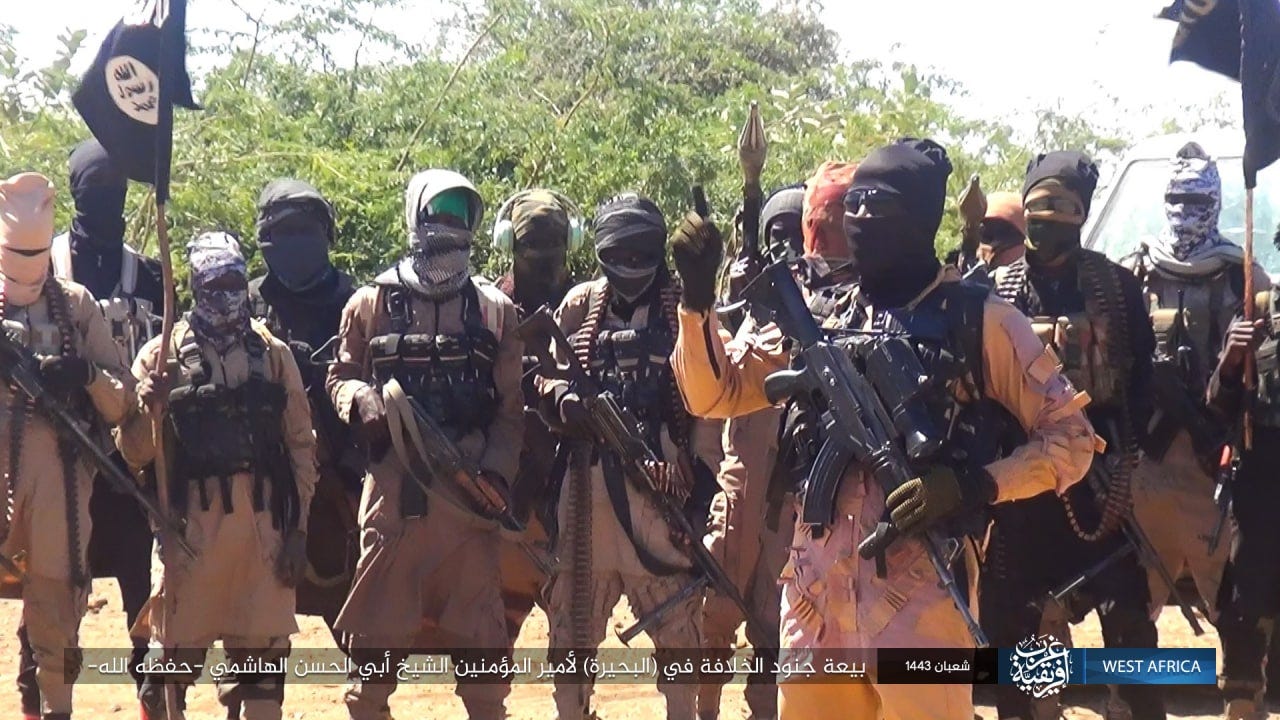Islamic State Attack Targeting President Buhari Signals Mounting Security Problems in Nigeria
In Nigeria, two significant events occurred between Christmas and the New Year. The first took place on December 29th with an explosion in Kogi State. What is particularly newsworthy about the incident is that the blast occurred while President Muhammadu Buhari was making a visit to Kogi. Some reporting indicates that the timing of the blast came within minutes of the president’s itinerary. Members of Islamic State West Africa Province (ISWAP) claimed that President Buhari was the target of the blast. Two members accused of belonging to the militant group were arrested for carrying out the plot.
This was not the only explosion that took place in Nigeria that week. A convoy carrying the former governor of Imo State, Ikedi Ohakim, was ambushed by gunmen who then attacked with a vehicle-born improvised explosive device (VBIED). Three police officers and a paramilitary official perished. The search is ongoing for those who planned the ambush.
And while the attack on Ohakim’s convoy was taking place, there was yet another event that has been rather humiliating for Nigerian security forces. On December 26th, a female officer serving in the Nigerian Army was allegedly abducted, also in Imo State, while visiting family. Within days, Nigerian security forces launched a massive operation to search for the missing officer. Residents of Imo have been critical of this operation, alleging that the security forces have burnt homes and shot people indiscriminately in several villages during their search.
Militant Wire offers regularly published research and analysis accessible to paid subscribers. Recent exclusive articles include:
• Islamic State Boasts Legacy of Battles in Fallujah and Lasting Psychological Impact on America; Pro-IS Media Targets Saudi Arabia Following Islamabad Embassy Threat Warning
• Al-Qaeda Says Al-Shabaab Set to Takeover Somalia, Compares to Taliban in Afghanistan, Believes US a "Paper Tiger" in Decline
• Operations and Weapons Profile of Russia's Controversial Rusich Reconnaissance, Sabotage, and Assault Group
• Detention of Former Serb Police Officer Brings Kosovo Back to the Brink
• Key Cartel Leader's Arrest Spurs Chaos and Violence in Culiacán, Mexico
• Islamic State Khurasan's International Target Strategy: Suicide Bombing Aimed at Taliban Foreign Ministry and Chinese Diplomats
• Islamic State Khurasan Criticizes Taliban-China Relations, Alleges IEA Complicit in Suffering of Uyghur Muslims
• Weapons Analysis: Russia's Wagner Organization and Its Combined Arms Operations in Ukraine
These recent attacks should be considered in the context of those against the offices of the Electoral Commission that occurred in early December 2022. According to the Associated Press, at least 50 Electoral Commission offices have been attacked in Nigeria since 2019.
Further, on January 8th in Zamfara State, Nigerian Police intercepted a shipment of arms that included rocket shells and anti-aircraft ammunition that was seemingly intended to be delivered to bandits. Also taking place over the weekend of January 15th were two attacks on priests; one priest was burnt to death and the other was shot and wounded.
Although there are no direct links between these events, they do paint an informative picture. President Buhari is term-limited therefore he will not be running in the elections at the end of February. So, the attack intended to eliminate him on December 29th can be viewed as a target of opportunity or more cynically as a parting shot at a departing leader.
The situation in Imo State poses another complicated challenge for Nigeria. Nnamdi Kanu, the leader of the Indigenous People of Biafra (IPOB), had his trial for terrorism and treasonable felony adjourned indefinitely in November 2022. A recent assessment by the International Republican Institute (IRI) and the National Democratic Institute (NDI) raised concerns that Boko Haram, ISWAP, and IPOB could launch attacks that designed to suppress voter turnout in upcoming elections. The report drew some backlash from IPOB as a spokeswoman demanded the US think tanks provide evidence that IPOB intended to carry out attacks.
Nigeria is a fragile state; it has had democratic roots for almost 30 years now, and it has had peaceful transitions of power. However, the inability of successive governments from different parties to rein in and defeat militant movements has become a pattern and is a root cause of instability in the country.
Should elections take place in February largely without incident, the outlook for stability in Nigeria will be no less pessimistic. Unless the incoming administration has some novel policies and a commitment to tackling militant movements proliferating in the country, the violent status quo is likely to prevail.



